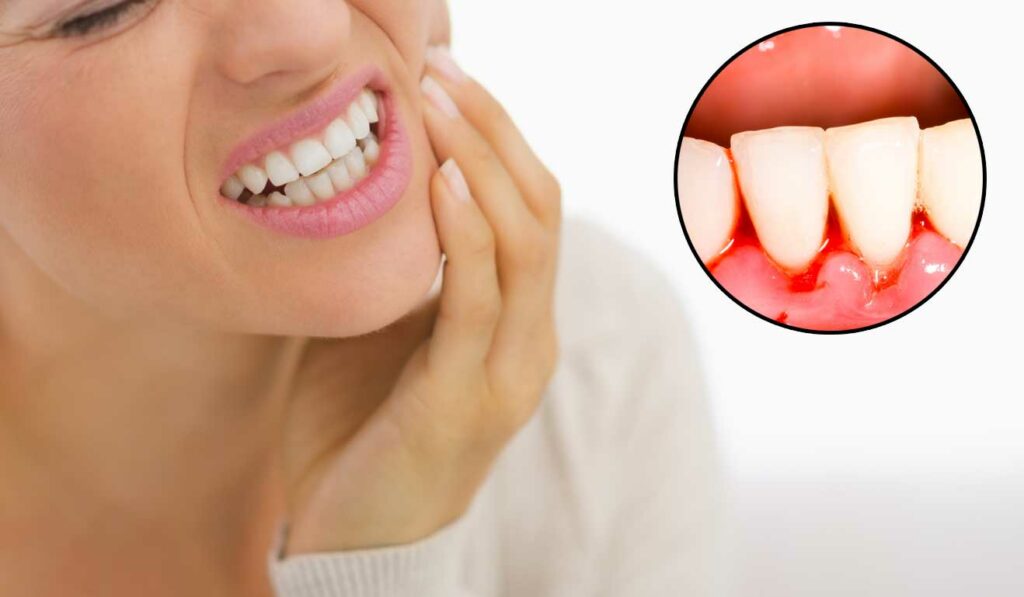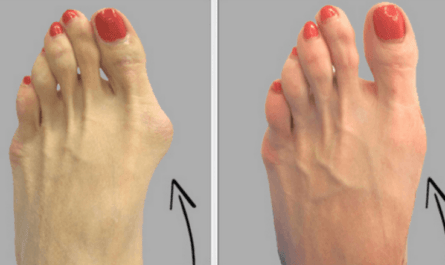Bleeding gums can be a cause of concern for many individuals. Not only is it uncomfortable and potentially painful, but it may also indicate an underlying oral health issue. Understanding why your gums bleed and how to stop it is essential for maintaining good oral hygiene and preventing further complications. This article will explore the common causes of gum bleeding and effective strategies to stop it.
Understanding Gum Bleeding
Gum bleeding, also known as gingival bleeding, occurs when the gums become swollen, sensitive, and prone to bleeding. It can happen during activities such as brushing, flossing, or eating.
While occasional bleeding may not be a cause for alarm, persistent or excessive bleeding should not be ignored, as it may indicate an underlying issue.

Common Causes of Gums Bleed
1. Poor Oral Hygiene
Neglecting proper oral hygiene is often the primary reason behind gum bleeding. When plaque, a sticky film containing bacteria, accumulates on the teeth and gumline, it can lead to gum inflammation, known as gingivitis.
Gingivitis causes the gums to become red, swollen, and prone to bleeding. If left untreated, it can progress to a more severe form of gum disease called periodontitis, resulting in tooth loss.
2. Hormonal Changes
Hormonal changes, particularly in women, can significantly impact gum health. Puberty, pregnancy, and menopause can all cause hormonal fluctuations that make the gums more sensitive and prone to bleeding.
This phenomenon is known as pregnancy gingivitis and can be effectively managed with proper oral hygiene and regular dental check-ups.
3. Medications
Certain medications, such as blood thinners and antiplatelet drugs, can increase the likelihood of gum bleeding. These medications reduce blood clotting, making it easier for the gums to bleed.
If you are taking any medications that might affect your gum health, it is crucial to inform your dentist, who can provide suitable recommendations and preventive measures.
4. Vitamin Deficiencies
Deficiencies in essential vitamins, particularly vitamins C and K, can weaken the gum tissues and contribute to bleeding. Vitamin C plays a vital role in collagen production, which helps maintain the integrity of the gums.
Vitamin K, on the other hand, aids in blood clotting. A well-balanced diet rich in fruits, vegetables, and other nutrient-dense foods can help address these deficiencies and promote healthy gums.
5. Aggressive Brushing
Brushing your teeth is essential to maintaining good oral hygiene, but striking the right balance is important. Too aggressively or using a toothbrush with hard bristles can do more harm than good.
Brushing too hard can irritate and damage the delicate gum tissues, leading to inflammation and bleeding.
Brushing the teeth with a soft-bristled toothbrush using gentle, circular motions is crucial. This ensures that you effectively remove plaque and debris without causing unnecessary harm to your gums.
6. Smoking
Smoking and tobacco use have detrimental effects on both your overall and oral health. When it comes to gum bleeding, smoking is a significant contributing factor.
The harmful chemicals in tobacco smoke can compromise the immune system, making it difficult for your body to fight off infections, including gum disease.
Additionally, smoking restricts blood flow to the gums, reducing their ability to heal properly and making them more prone to bleeding. If you’re a smoker, quitting this habit will benefit your gums and improve your overall well-being.
7. Infections
Oral infections can wreak havoc on your gum health and lead to bleeding. Gum abscesses, for example, are localized infections that form when bacteria penetrate the gums, causing pus-filled pockets.
These abscesses can result in severe gum swelling, tenderness, and bleeding. Another common oral infection is thrush, caused by an overgrowth of Candida fungus in the mouth.
Thrush can cause redness, soreness, and bleeding in the gums. Seeking prompt dental treatment is crucial for effectively managing and treating these infections to prevent further complications.
8. Systemic Diseases
Certain systemic diseases can manifest symptoms in the oral cavity, including bleeding gums. Diabetes, for instance, can affect gum health by reducing the body’s ability to fight off infections and impairing the healing process.
Uncontrolled diabetes can lead to gum disease, which, in turn, causes gum bleeding. In addition, Leukemia can also contribute to bleeding gums due to its impact on the body’s clotting system.
Effective Strategies to Stop Gum Bleeding
Now that we have a deeper understanding of why gums bleed, it’s time to explore effective strategies to address the issue. Following these recommendations, you can take proactive steps to stop gum bleeding and improve oral health.
1. Maintain a Consistent Oral Hygiene Routine
Brushing your teeth at least twice a day and flossing daily is crucial for preventing gum bleeding. However, it is essential to employ proper brushing and flossing techniques to avoid further irritation. Here’s how:
- Brushing: Use a soft-bristled toothbrush and gentle, circular motions to clean your teeth and gums. Ensure you reach all areas, including the gum line and the back of your mouth. Brush for at least two minutes, but avoid aggressive scrubbing.
- Flossing: Gently insert the floss between your teeth, curving it around each tooth in a C-shape. Slide the floss up and down against the tooth and just below the gum line. Repeat this process for each tooth, using a fresh section of floss for each one.
2. Choose the Right Oral Care Products
Using the right oral care products can make a significant difference in managing gum bleeding. Look for toothpaste and mouthwash specifically designed for gum health.
These products often contain antibacterial ingredients such as chlorhexidine or essential oils like tea tree oil, which help reduce gum inflammation and bleeding.
Additionally, consider using an antibacterial mouthwash after brushing to promote gum health further.
3. Quit Smoking and Limit Alcohol Consumption
Smoking not only stains your teeth and leads to bad breath, but it also damages your gum health. The chemicals in tobacco smoke can weaken the immune system and hinder blood flow to the gums, making them more susceptible to bleeding.
Quitting smoking is one of the most impactful steps to improve your oral health and prevent gum bleeding.
Similarly, limiting alcohol consumption can also benefit your gum health, as excessive alcohol intake can contribute to gum inflammation and bleeding.
4. Maintain a Healthy Diet
A well-balanced diet plays a vital role in overall oral health. Opt for foods rich in vitamins and minerals that support gum health, such as:
- Vitamin C: Citrus fruits, strawberries, bell peppers, and broccoli.
- Vitamin K: Leafy green vegetables, such as spinach and kale, and Brussels sprouts.
- Omega-3 fatty acids: Fatty fish like salmon, chia seeds, and walnuts.
- Calcium: Dairy products, leafy greens, and fortified plant-based milk.
Incorporating these foods into your diet can help strengthen your gum tissues, reduce inflammation, and promote healing.
5. Schedule Regular Dental Check-ups
Regular dental check-ups are crucial for maintaining optimal oral health and preventing gum bleeding. Dentists can identify early signs of gum disease or other issues causing the bleeding and provide appropriate treatment.
They can also perform professional cleanings to remove stubborn plaque and tartar contributing to gum inflammation.
6. Manage Stress Levels
Stress can significantly impact your oral health, including your gum health. High-stress levels can weaken the immune system, making it harder for your body to fight off gum infections and inflammation.
Find healthy ways to manage stress, such as practicing meditation, engaging in physical exercise, or pursuing hobbies that help you relax. Taking care of your mental well-being will positively influence your gum health.
FAQs About Gum Bleeding
1. Can hormonal changes during pregnancy cause gum bleeding?
Yes, hormonal changes during pregnancy can lead to pregnancy gingivitis, causing the gums to become inflamed and bleed more easily. Practicing good oral hygiene and visiting the dentist regularly can help manage this condition.
2. How long does it take for bleeding gums to heal?
A: The time it takes for bleeding gums to heal depends on the underlying cause and the individual’s oral hygiene habits. With proper care, including regular brushing, flossing, and dental check-ups, most cases of gum bleeding can improve within a few weeks.
3. Is gum bleeding a sign of gum disease?
A: Gum bleeding can be an early sign of gum disease, particularly if it is persistent or excessive. If left untreated, gum disease can progress and lead to more severe complications, including tooth loss.
4. Can stress contribute to gum bleeding?
High-stress levels can weaken the immune system, making it harder for the body to fight gum infections and inflammation. Managing stress through healthy coping mechanisms can positively impact gum health.






